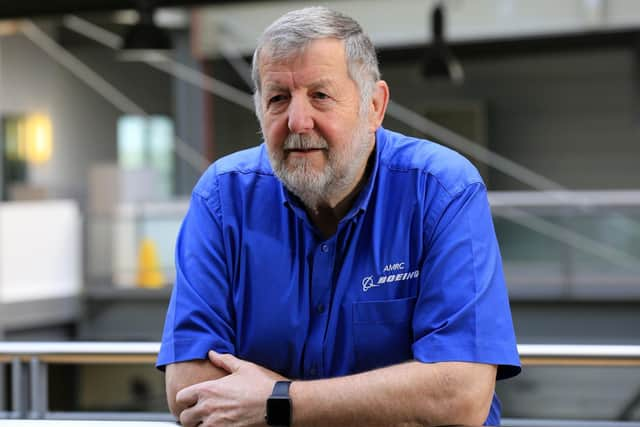Forget the past, it is time for Sheffield to get out of its defensive crouch and do what it does best - Mark Casci
Much of its achievements and contributions have come from a place of inspiration and innovation that is very insular and parochial, something that has allowed Sheffield to excel in so many areas, whether it be industry, culture or discovery.
Readers of Saturday’s edition of The Yorkshire Post will have come across the considered and prescient views of another of Sheffield’s great ambassadors, Professor Sir Keith Ridgway.
Advertisement
Hide AdAdvertisement
Hide AdIn an article and interview with this newspaper, Professor Ridgway laid out a vision for the city’s economic future, one based on the city’s unique strengths and inspired by the example of another European city.


Taking the example of Dortmund, comparable to Sheffield in terms of population and economy, he explained how both cities had suffered owing to the decline of the industrial might during the 1960s and 1970s in the face of global competition.
In the case of the German city, it came roaring back to become one of Europe’s most competitive destinations, achieved in part by a mind-set of dogged self-reliance that sounds eerily similar to that felt in the Steel City.
However Sheffield, by contrast, remains in something of a defensive crouch, beset by poor levels of productivity and ranking towards the lower echelons of the skills league tables.
Advertisement
Hide AdAdvertisement
Hide Ad“It has still to make the transition to an advanced manufacturing economy with a skills base to support innovation,” said Professor Ridgway in his article.


“Dortmund initially picked three or four areas that they were good at,” he told me in a follow-up interview. What Dortmund did, they disconnected themselves. They were selfishly Dortmund.
Forget Rhein-Westphalia, they concentrated on Dortmund and then pulled everything behind it. You really need to do that with Sheffield and Rotherham.
“We are in the same position, just a bit behind it. And I think the reason for that is confidence.”
Advertisement
Hide AdAdvertisement
Hide AdProfessor Ridgway has called upon all of Sheffield’s major institutions, both civic and economic, to unite to prioritise key areas of advanced manufacturing, digital, clean energy and health.
He says the recent change in regime at the council, which had become complacent under static leadership for several years, represented an ideal time to do so.
It is hard to argue against this. The debacle with the tree-felling programme in Sheffield, plus the intractable debate over devolution to the region, did not cover the city’s civic leaders in glory, leading to voters in Sheffield opting for a brand new approach regarding its governance.
The new coalition now charged with running Sheffield stopped short of endorsing Professor Ridgway’s proposition when I put it to its media team, but does seem to grasp the imperative.
Advertisement
Hide AdAdvertisement
Hide AdIts new leader, Terry Fox, had this to say: “Our plans for Sheffield’s future are ambitious and by working closely with our partners and local business leaders we ensure that we’re focusing investment in initiatives that make the most of what Sheffield has to offer and maximise the wealth of expertise and experience here.
"Sheffield is at the forefront of cutting-edge technology across a range of sectors and we’re proud to have attracted such high-profile investment to the city.
"This transformational work cannot be done in silos, and it is especially important that as we begin to recover from the pandemic we continue to listen to and collaborate with our partners in the city to work together to ensure a thriving future for Sheffield.”
As Dortmund was selfishly all about Dortmund, I feel it is time for Sheffield to do likewise and harness its strengths from within. All of the areas highlighted are sectors for the future and ones that can allow the city’s workforce, particularly the young, to thrive within its boundaries.
That dogged sense of us and us only could be set to deliver a whole new chapter of success.
Over to you Sheffield, do what you do best and be you.